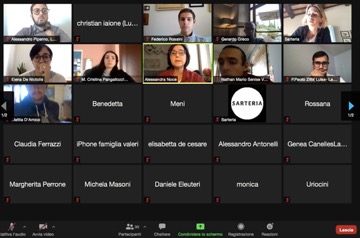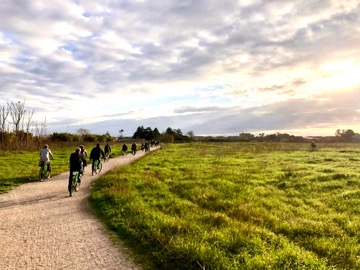In the past months there have been developments which brought some changes. which affected not only CHLs’ activities but the OpenHeritage project agenda as a whole. The changes were mainly because of the Covid-19 pandemic and the related restrictive measures imposed in many European countries for the containment of infection (social distancing, ban on groupings, etc.). These factors mainly affected Italy in the first months of 2020, which was in fact the first country to take measures to limit the pandemic. These limitations have imposed a general reconsideration of the Rome CHL activities within the Centocelle heritage district, and above all a reassessment of the strategy to promote the district’s cultural value in order to favor local and sustainable tourism. The enhancement of the area will be promoted especially through the organization of a participatory public art exhibition (Living Memory Exhibition), which will be promoted also thanks to a local communication campaign (Local Action Campaign) to involve as many local citizens as possible.

LME workshops
To this end, the process of co-production of the works of art to be realized has already been started through a series of workshops organized by the Co-Roma coalition, and in collaboration with the neighborhood cooperative “CooperACTiva”. The workshops have seen the participation of professionals from the art and cultural sector, as well as artists who will build the works to be exhibited together with the community.
Furthermore, digital and offline services provided by the neighborhood cooperative (“CooperACTiva”) and its partners will be useful to create a connection in the socio-economic background of the district territory, and will promote the territory intangible heritage value. In fact, the ACT district area (or the Centocelle heritage district) is an area historically dedicated to agricultural and agro-industrial entrepreneurship, to which the archaeological remains (unfortunately not yet visible to visitors) of the Roman villae discovered within the Centocelle Archaeological Park also bear witness. Thus, the neighborhood cooperative plans to activate a bike tour service to let visitors discover the cultural value of the district, so to give them a unique and true experience through the rediscovery of Rome’s suburban areas.

